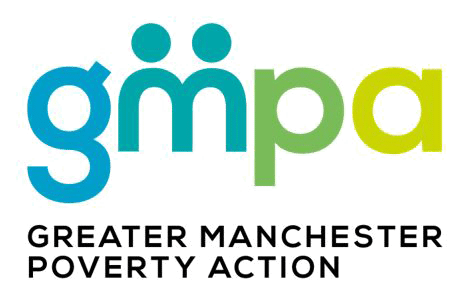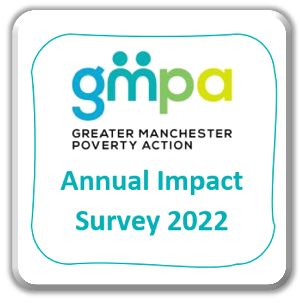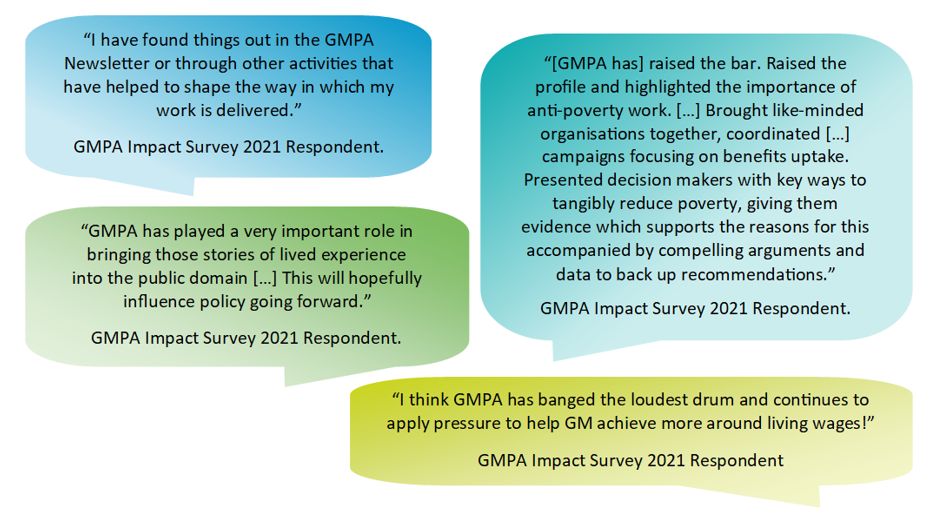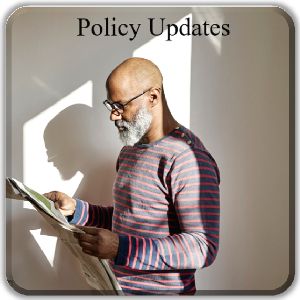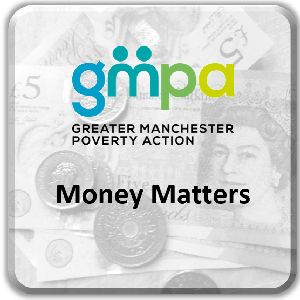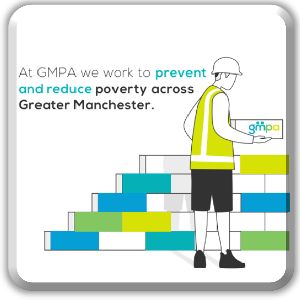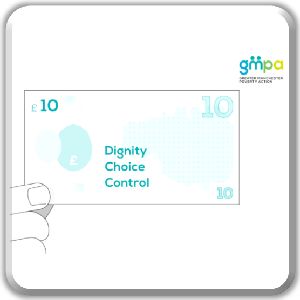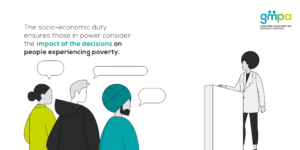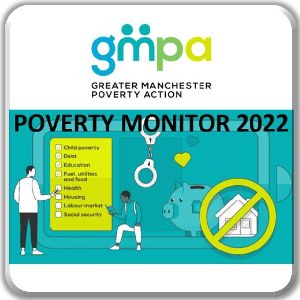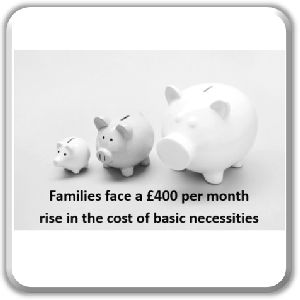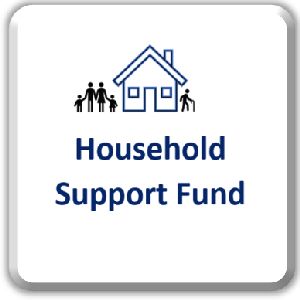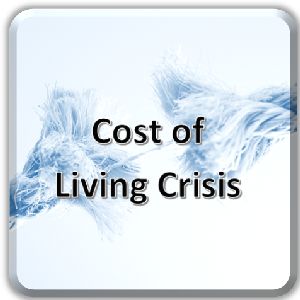Organisations in Tameside are better able to help people to access the support that’s right for them as a result of GMPA’s Money Advice Referral Tool project.
GMPA’s Money Advice Referral Tool is currently in place in Tameside and Oldham. The Tool supports people to access advice and maximise their income by improving referral and signposting between different agencies. The aim is to help people get all the money that they are entitled to, and to reduce the need for referrals to food banks, by increasing access to other kinds of support.
ICF Consulting Services has been commissioned to support GMPA to evaluate the pilot stage of the programme. As part of this, ICF recently undertook a rapid process evaluation of the pilot roll-out of the Money Advice Referral Tool in Tameside.
The evaluation was informed primarily by:
• Qualitative interviews with those responsible for designing the tool and four support services listed on the tool (Citizens Advice Tameside, Tameside Welfare Rights, GM Law Centre, Christians Against Poverty).
• Interviews and focus groups with 16 stakeholders in 11 different referral organisations (two food banks, a housing association, social prescribers, a church, Jobcentre, a local charity, and a range of council services) to understand their awareness and experiences of the tool.
The interviews provided illustrative insights into how the tool has been accessed and received. Here are some of the comments about the Money Advice Referral Tool made by those interviewed:

The Money Advice Referral Tool appears to have been well-received among services in Tameside. Positive feedback was provided about the layout and functionality of the tool, particularly that information was provided on one-sheet (with further information available online) and it was clear what services could provide support based on the numbering format used. Interviewees generally felt it was simple and easy for a range of people (professionals and non-professionals alike) to use. Some even described the tool as empowering, at when given to people in need of support, it enabled them to take charge of their own situation.
Many of the interviewees could describe the potential benefits the tool might have in Tameside, including supporting faster referrals and establishing better links between organisations.
It was felt that there was scope to develop the tool further, by evolving the functionality of the tool (e.g. by translating it into a mobile app format) and to use it as the basis to create a system to make referrals between organisations in Tameside.
Several early lessons can also be shared from the pilot:
A formalised and clear dissemination strategy (which includes considerations for branding, training modules on how to use the tool, outreach plans to increase access to different communities) will help to spread awareness of the tool and ensure end-users understand its purpose and how it should be used. This could also help to track who is using the tool, which in turn can help measure its impact.
The tool requires regular updating to ensure it can keep up any changes in who is offering advice and support, and what is most relevant for the tool. Consideration should be given to how this may practically work, to help support the sustainability of the tool.
Continued monitoring and evaluation of the tool will help to identify what impact it is having. It will also identify if there any gaps in services, if the tool should be updated, and how else the tool might be improved.
The ICF Team are now continuing their evaluation, focusing on the implementation of Oldham’s Money Advice
Referral Tool pilot.
Commenting on the evaluation, GMPA’s Graham Whitham said, ‘We’re delighted with the way the Tool has been received by agencies in Tameside. The Tool is helping to ensure that organisations can help low income residents maximise their incomes and access advice and support appropriate to their needs. ICF’s initial evaluation is helping us understand how we can develop the Tool further and achieve maximum impact through its implementation as we seek to rollout it out in a further four boroughs this year’.
